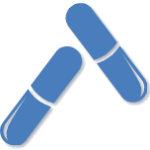Sensei Biotherapeutics announced the publication of data from the company’s multi-center Phase 1 clinical trial to assess safety and immunogenicity of SNS-301 (formerly PAN-301) in patients with biochemically recurrent prostate cancer. Data were published in conjunction with the 2018 American Society of Clinical Oncology (ASCO) Annual Meeting in Chicago, IL.
SNS-301 is a first-in-class immunotherapy candidate utilizing a bacteriophage viral vector targeting a novel embryonic antigen called human aspartate β-hydroxylase (ASPH). In adults, ASPH is only expressed on the surface of cancer cells and has been detected in more than 20 different types of cancer. SNS-301 was created using Sensei’s SPIRIT platform to optimize for antigen presentation and vaccine immunogenicity.
In the Phase 1 trial, SNS-301 was administered every 21 days via intradermal injection to men with biochemically relapsed prostate cancer, using a fixed dose-escalation schema to establish the recommended Phase 2 dose. A minimum of three doses of SNS-301 were administered to each patient. Fifteen patients who met all other inclusion and exclusion criteria were screened for ASPH expression using a serum-based companion diagnostic test, and 12 of the 15 patients presented the minimum threshold for ASPH expression. These patients received as many as 18 doses of SNS-301 (mean = 10 doses per patient), including a minimum of 3 treatments at the high dose, over the 15-month duration of the study. Highlights of the safety and immunogenicity data published at ASCO include:
- SNS-301 was well tolerated with a favorable safety profile across all dose levels in the Phase 1 study.
- No dose-limiting toxicities were observed at the three dose levels evaluated in the trial.
- All patients in the study experienced dose-dependent, ASPH-specific humoral and cellular immune responses, including ASPH-specific B-cell and T-cell responses.
- 75% (6/8) of evaluable patients achieved improvements in Prostate-Specific Antigen (PSA) doubling time and/or absolute PSA. Improvements in PSA doubling rate are an indicative measure of slowing disease progression.
“We are extremely encouraged by these clinical results from our Phase 1 study of SNS-301 which validate the potential of our proprietary SPIRIT drug development platform to generate novel immuno-oncology therapies,” said John Celebi, President and Chief Executive Officer of Sensei Biotherapeutics. “SNS-301 exemplifies Sensei Biotherapeutics’ ability to engineer promising therapeutic candidates designed to teach the immune system to recognize and attack cancer.”
This Phase 1 study of SNS-301 was initiated in January 2017 and enrollment of 12 patients was completed in February 2018. SNS-301 is the lead clinical candidate from Sensei Biotherapeutics’ proprietary SPIRIT drug development platform. Final results will be presented at a medical meeting in the second half of 2018 and initial enrollment in a Phase 2 efficacy trial is anticipated by the end of the year.

